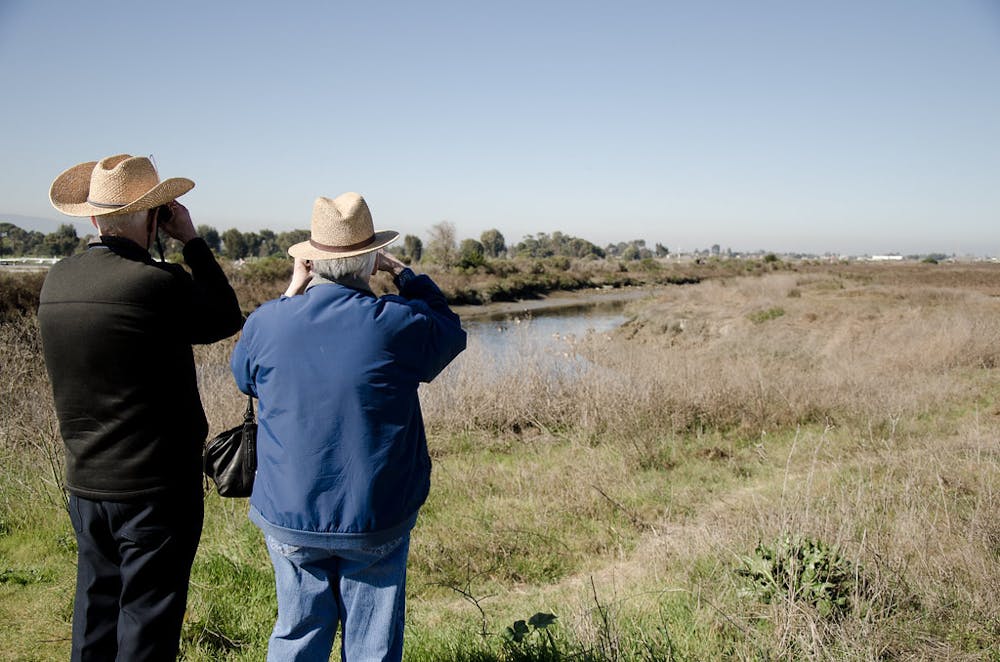The National Institute on Aging has allocated Hopkins a $20 million grant to promote the growth of advanced artificial intelligence (AI) technology to enhance the care of senior citizens, enabling them to enjoy longer independence. According to the Centers for Disease Control and Prevention, of those who are over the age of 65, 80% have at least one chronic condition, and one third experience limitations in their daily life activities.
The AI and Technology Collaboratory (AITC), a collaboration of teams from the Schools of Medicine, Nursing and Engineering and the Carey Business School, is working to develop AI and technology for healthy aging. Rama Chellappa, a Bloomberg distinguished professor of electrical and computer engineering and biomedical engineering, and Dr. Peter Abadir, an associate professor of geriatric medicine and gerontology, will be among those who will lead the research as part of the multi-AI interdisciplinary team.
In an interview with The News-Letter, Abadir explained that the AITC represents an engineering, health-care and business overlap with eight specific cores.
“Each core has a distinct role but works together towards a single purpose of promoting healthy aging in social, cognitive and behavioral aspects,” Abadir said.
The Networking and Mentoring Core is where Alonzo and Virginia Decker Professor of Strategy and Entrepreneurship Phillip Phan, who holds a joint appointment in medicine, serves as the connecting tissue of the AITC and the outside world, associated with the distribution of knowledge and funds.
A driving component that brings the team together is the promise of AI technology. AI is said to be intelligent because the machine can perceive information and find meaning behind the data that is similar — if not the same — to the information collected by people. Applying AI to large data sets to see the behaviors of people can depict people’s thought processes and directly show how the older population views the world.
In an interview with The News-Letter, Phan and Chellappa discussed the objectives of their project.
“The ultimate goal is to use this technology to predict what will happen next, given the behaviors the machine observes,” Phan said. “We can prevent an event from happening before it actually happens.”
Chellappa shared similar thoughts about the potential of the AITC.
“The excitement is that our work can help physicians use the technology as markers for measuring the evolution of age-related diseases, like dementia and Alzheimer’s, and predicting falls using patterns and behaviors of older adults,” Chellappa said.
This could help prevent older people from falls, which are the leading causes of lifelong injury and death in those 65 and older.
However, since the developments in AI have more to do with human behavior than the technology itself, the team predicts several obstacles to come.
“Predicting behaviors and figuring out exactly how people will age is very difficult,” Chellappa said.
Therefore, according to Abadir, direct input and opinions from older adults, administrators and companies are extremely important.
“With feedback, we can determine what to focus on, define technologies that better meet the needs of the people and ultimately test the technology outside academic centers and into the real world,” Abadir said.
Phan expressed concern that people might not be willing to take risks.
“Our limiting factor may be how people choose to make meaning out of these technologies,” he said.
However, Phan noted that the technology for aging research has a great promise for growth.
“Right now, we are just barely scraping the surface and at the infancy of the technology,” Phan said.
Over the next few years, the AITC hopes to share its research and pursue work with other researchers to apply technologies efficiently to keep people healthier and happier for longer.
“We are analyzing very important problems because everyone is aging,” Chellappa said. “But how we age and how technology can be used to address the problems associated with aging is the real question.”





